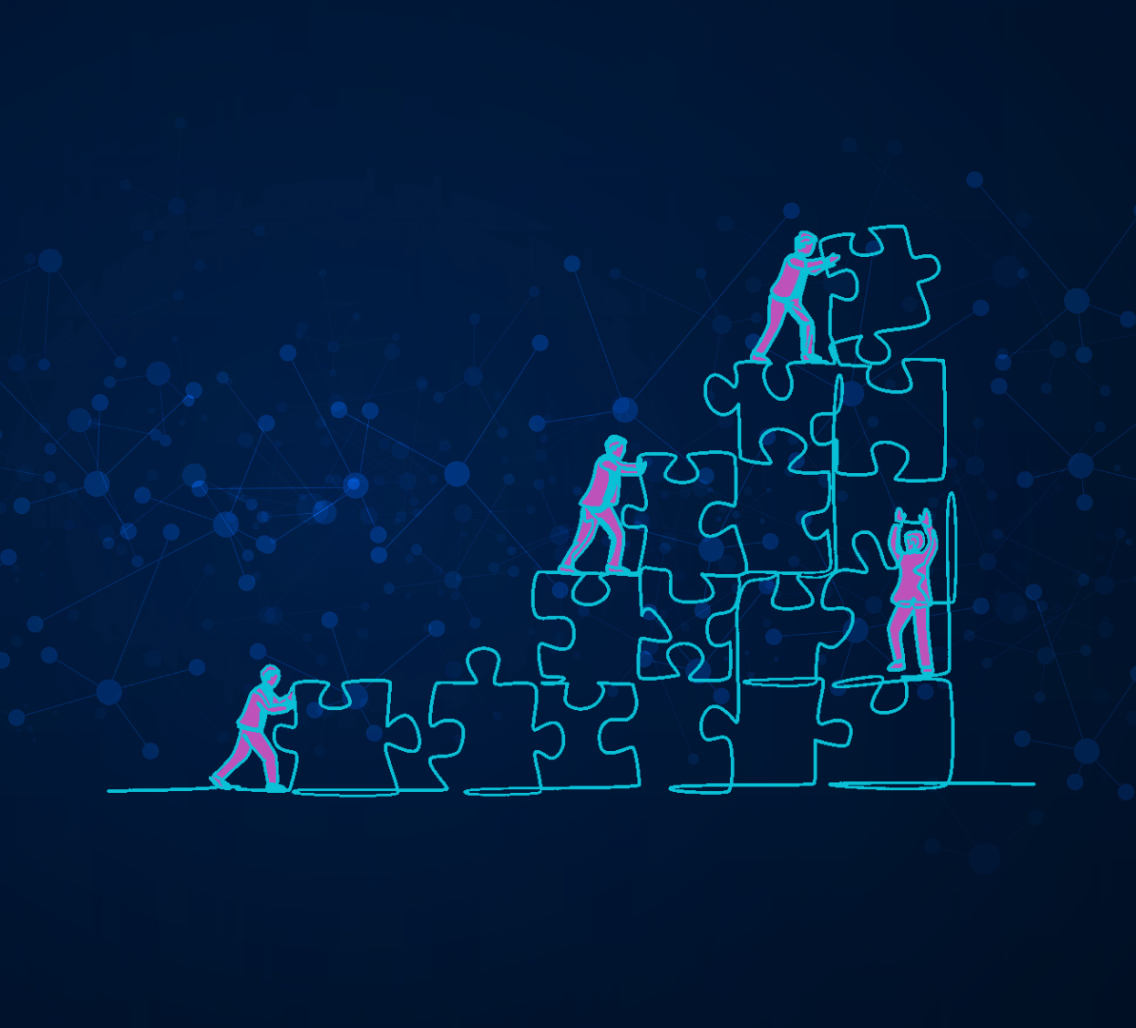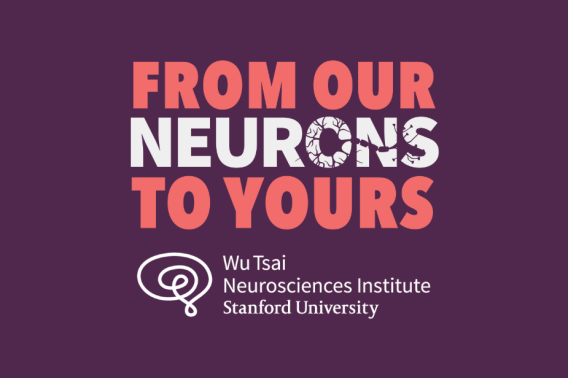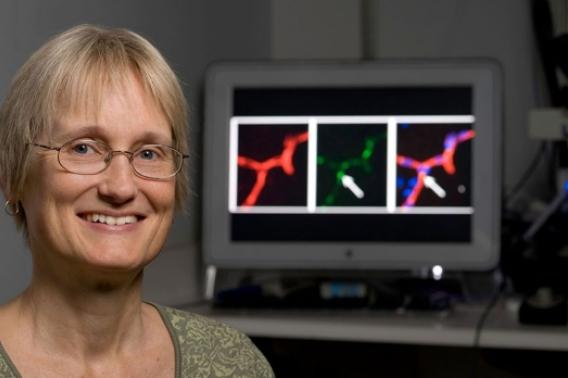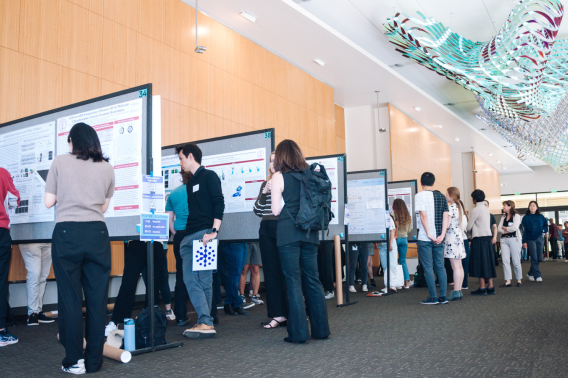Advancing Brain Resilience: 2024 Catalyst and Pilot Grant Awards

What if we could unlock the secrets to maintaining cognitive vitality well into old age?
Aging often brings challenges like memory loss, dementia, and neurodegeneration. Yet, some individuals defy these trends, maintaining cognitive sharpness even past 100 years. Understanding this resilience is at the heart of groundbreaking research supported by the Knight Initiative for Brain Resilience at Stanford’s Wu Tsai Neurosciences Institute.
The Knight Initiative is proud to support 14 innovative projects that aim to uncover the mechanisms behind healthy brain aging and combat neurodegenerative conditions like Alzheimer’s and Parkinson’s diseases. These projects contribute directly to the Initiative's larger goal of stimulating bold new approaches to tackling the drivers of dementia.
“Together, these innovative proposals will pursue transformative ideas outside the mainstream that will advance our mission to extend the healthy lifespan of the human brain,” said Tony Wyss-Coray, the D.H. Chen Distinguished Professor of Neurology and Neurological Sciences and Director of the Knight Initiative.
Supporting scientists from 16 departments across Stanford’s schools of Medicine, Engineering, and Humanities and Sciences, these awarded projects reflect the Knight Initiative’s commitment to fostering bold, interdisciplinary research. Ten projects have earned Catalyst Grant Awards, each receiving $500,000 over two years, while four received Pilot Grant Awards with $250,000 funding over two years.
“The ability to obtain generous and timely support for high-risk, high-reward projects such as ours is the best way to advance innovative and potentially transformative scientific discoveries,” noted awardee Ron Kopito, professor of biology, whose project focuses on mechanisms that could help neurons combat cognitive decline.
Sharing this sentiment, Bradley Zuchero, assistant professor of neurosurgery, said, “I'm excited about the scientific direction of this project because it allows us to explore the largely overlooked role of myelin in promoting healthy brain aging and resilience against cognitive decline.”
Catalyst Grant Awards: Bold ideas in brain research
The Catalyst Grant Awards, now in their second round, fund early-stage, high-impact research in brain resilience. Spanning a wide range of innovative approaches, these projects tackle key issues such as memory loss, neurodegeneration, and the mechanisms of brain aging from unconventional angles.
“We are thrilled and grateful to receive this very precious funding,” said Carla Shatz, professor of biology and neurobiology. “Our research addresses molecular mechanisms crucial for stabilizing and preserving synapses formed during learning that go awry in Alzheimer’s disease.”
AI to model and boost brain repair and resilience during aging
- James Y Zou, Assistant Professor, Biomedical Data Science, Faculty Affiliate, Institute for Human-Centered AI (HAI)
- Anne Brunet, Professor, Genetics
As the brain ages, its ability to repair itself and stay resilient diminishes, making it more susceptible to injuries and diseases. This project aims to harness artificial intelligence to explore these changes, focusing on cell-cell interactions and spatial genomics within the brain. By applying machine learning and genetic tools, the team will work to identify new mechanisms that could enhance brain function as we age and counter neurodegenerative diseases.
Convergence of signals for pruning at a synaptic receptor implicated in Alzheimer's disease
- Carla Shatz, Professor, Biology, Neurobiology, Faculty Fellow, Sarafan ChEM-H
- Alice Y Ting, Professor, Genetics, Biology, Faculty Fellow, Sarafan ChEM-H
Alzheimer’s disease is marked by the loss of synapses, where memories are stored, often due to excessive pruning triggered by interactions between brain receptors and proteins. This research seeks to understand these interactions, mainly focusing on how a specific receptor and immune fragments contribute to synapse loss. The team hopes to identify new treatment approaches beyond the traditional focus on amyloid plaques.
Unconventional IRE1 activation for promoting brain resilience
- Ron Kopito, Professor, Biology
The harmful clumping of proteins in the brain is a hallmark of cognitive decline and dementia, yet some brains are more resilient against this process. This project seeks to uncover why by investigating a newly discovered defense mechanism within brain cells. The team aims to enhance this natural protection to promote brain resilience and delay the onset of neurodegenerative diseases.
Myelin – an untapped target for preventing or reversing brain aging
- J Bradley Zuchero, Assistant Professor, Neurosurgery, Faculty Fellow, Sarafan ChEM-H
- Mehrdad Shamloo, Professor (Research), Neurosurgery, Director, Behavioral and Functional Neuroscience Community Laboratory
Myelin, the nerve fiber insulation crucial for learning, memory, and neuroprotection, deteriorates with age, contributing to cognitive decline. This project will explore the underlying causes of myelin damage and potential ways to reverse this process. By understanding these mechanisms, the team aims to unlock new therapeutic strategies to combat brain aging and neurodegenerative diseases.
Clinically translating ultrasonic CSF clearing to enhance brain resilience
- Raag Airan, Assistant Professor, Radiology, Faculty Fellow, Sarafan ChEM-H
- Andrea Goldstein-Piekarski, Assistant Professor (Research), Psychiatry and Behavioral Sciences - Sleep Medicine
- Kawin Setsompop, Associate Professor, Radiology
- Longzhi Tan, Assistant Professor, Neurobiology
Harnessing the power of ultrasound, researchers are exploring a novel way to boost brain resilience by improving waste clearance through cerebrospinal fluid (CSF) circulation. This noninvasive technique has shown promise in reducing brain swelling, inflammation, and waste buildup in rodents. Now, the team is moving forward to test this innovative approach in humans, aiming to establish its safety and effectiveness as a potential treatment for age-related brain disorders.
Towards rescuing diverse forms of proteinopathies by induction of autophagic flux
- Shirit Einav, Professor, Medicine - Infectious Diseases, Microbiology and Immunology
- Wah Chiu, Professor, Photon Science Directorate, Bioengineering, Microbiology and Immunology, Faculty Fellow, Sarafan ChEM-H
- Monther Abu-Remaileh, Assistant Professor, Chemical Engineering, Genetics, Institute Scholar, Sarafan ChEM-H
Neurodegenerative diseases, such as ALS, often involve the accumulation of toxic protein aggregates in brain cells. This project focuses on a protein that regulates autophagy, the body’s process for clearing these harmful aggregates. By targeting this protein, the team aims to develop broad-spectrum treatments to enhance brain resilience and combat neurodegenerative conditions.
Identifying the intrinsic biological factors of APOE risk and resilience across relevant iPSC-derived brain cell types
- Birgitt Schuele, Associate Professor (Research), Pathology
- Ted Wilson, Instructor, Neurology and Neurological Sciences
The APOE4 gene is a major risk factor for Alzheimer’s disease (AD), yet some carriers remain cognitively healthy, suggesting the presence of protective factors. This project will investigate these factors by developing brain cell models from APOE4 carriers and comparing them with models from those who carry the less risky APOE3 gene. The goal is to identify biological pathways that could inform new treatments or prevention strategies for AD.
Harnessing ketone metabolites for brain health and brain resilience
- Juliet K Knowles, Assistant Professor - University Medical Line, Neurology, Pediatrics
- Jonathan Z. Long, Associate Professor, Pathology, Institute Scholar, Sarafan ChEM-H
Ketosis, a metabolic state induced by certain diets or fasting, has been linked to improved brain health. This research will explore how compounds produced during ketosis, specifically BHB-amino acids, affect brain function. Based on their findings, the team aims to uncover whether these compounds can promote brain resilience, particularly in the aging population, and develop new dietary or therapeutic strategies.
The role of microglia in brain resilience to pathological protein aggregates
- Marius Wernig, Professor, Pathology - Pathology Stem Cell Institute
- Monther Abu-Remaileh, Assistant Professor, Chemical Engineering, Genetics, Institute Scholar, Sarafan ChEM-H
As we age, certain proteins can clump together in the brain, a hallmark of diseases like Alzheimer’s. However, not everyone with these protein aggregates develops neurodegeneration, suggesting the brain has built-in defenses. This project investigates the role of microglia, the brain's immune cells, in providing this protection to discover how to enhance these natural defenses against age-related brain disorders.
Identifying mechanisms of dopaminergic neuron resilience and their roles in Parkinson’s disease
- Michael Bassik, Associate Professor, Genetics, Faculty Fellow, Sarafan ChEM-H
- Monther Abu-Remaileh, Assistant Professor, Chemical Engineering, Genetics, Institute Scholar, Sarafan ChEM-H
Parkinson’s disease, a neurodegenerative disorder affecting millions, is marked by motor deficits and the progressive loss of dopaminergic neurons. This project aims to uncover what makes some of these neurons more resilient to the disease by developing advanced models of Parkinson’s using patient-derived neurons. Leveraging CRISPR technology to uncover key protective factors, the team is paving the way for potential new therapies that could slow or even reverse the progression of Parkinson’s.
Pilot Grant Awards: Exploring emerging ideas
Recognizing the extraordinary number of promising proposals, the Knight Initiative introduced Pilot Grant Awards to support innovative research that explores new frontiers in brain resilience. These one-year grants are designed to accelerate research in areas requiring rapid, exploratory investigation.
“This Pilot Grant will enable our labs to join forces for the first time to solve the mysterious connection between brain glycans, cognition, and neurodegeneration,” explained Longzhi Tan, assistant professor of neurobiology. His project aims to map the glycocalyx, a vital but underexplored component in brain function and resilience, potentially opening new avenues for treating dementia.
Pascal Geldsetzer, assistant professor of medicine, shared, “My group believes we have generated convincing evidence that shingles vaccination delays or prevents dementia. This pilot grant will allow us to explore this high-risk but extremely high-reward opportunity with data collected as part of a clinical trial.”
Optimizing endogenous signaling pathway activity to enhance cognitive resilience
- Philip Beachy, Professor, Urology, Developmental Biology
Activating the Hedgehog (Hh) signaling pathway has shown promise in boosting cognitive resilience, particularly in aging. In older mice, stimulating this pathway has improved memory and beneficial metabolic changes in the brain. The research team is now working to identify the specific cells and mechanisms behind these effects, aiming to develop targeted therapies to help preserve brain function as we age.
The effect of live-attenuated herpes zoster vaccination on blood-based biomarkers of neurodegeneration
- Pascal Geldsetzer, Assistant Professor, Medicine - Primary Care and Population Health
Recent evidence suggests that infections, particularly herpes viruses, may play a role in the development of dementia. Building on findings that shingles (herpes zoster) vaccination might delay or prevent dementia, this project aims to investigate the effects of the vaccine on blood-based markers of neurodegeneration. By analyzing blood samples from a previous clinical trial, the researchers hope to uncover whether shingles vaccination offers protection against dementia, potentially leading to new strategies for preventing or delaying brain aging.
Mapping and rejuvenating the brain glycocalyx to improve resiliency
- Longzhi Tan, Assistant Professor, Neurobiology
- Carolyn Bertozzi, Professor, Chemistry, Director, Sarafan ChEM-H
The brain's glycocalyx, a network of sugars on cell surfaces, is vital for neuron communication and memory formation. Yet, its role in aging and neurodegenerative diseases remains largely unexplored. This project aims to map the glycocalyx in the aging brain and investigate how it influences neuronal function. By understanding and potentially rejuvenating this sugar network, the research could lead to new strategies for enhancing brain resilience and treating conditions like dementia.
Promoting neurovascular repair to improve cognitive resilience across the lifespan
- Marion S. Buckwalter, Professor, University Medical Line - Neurology and Neurological Sciences, Neurosurgery
- Sarah Heilshorn, Professor, Materials Science and Engineering, Faculty Fellow, Sarafan ChEM-H
Enhancing cognitive resilience may hinge on maintaining healthy brain blood vessels, especially as we age. This project explores therapies designed to repair and preserve these vessels, even after mild injuries that could otherwise lead to cognitive decline or dementia. By testing these therapies in mice and planning to move to human studies, this team aims to develop strategies to protect against age-related cognitive decline by improving vascular brain health.
Looking forward
These bold projects represent the Knight Initiative’s commitment to advancing the science of brain resilience by supporting research beyond the traditional focus on amyloid and tau biology. As these studies progress, the findings they produce have the potential to reshape our understanding of how to maintain cognitive vitality throughout life.
“I believe we live in exciting times in brain aging and neurodegeneration research,” said Marius Wernig, professor of pathology, whose research focuses on how the brain defends itself from neurodegeneration. “After decades of darkness and only a few clues, the discovery of clear genetic risk factors and biomarkers now allows us to formulate compelling hypotheses. Thanks to this Catalyst Award from the Knight Initiative, our team is now able to shed light on key mechanisms of how the brain fends off ongoing pressures to decline.”
By funding ambitious projects that tackle uncharted territories, the Knight Initiative is positioning itself at the forefront of neurodegenerative disease research, helping to catalyze future discoveries.





